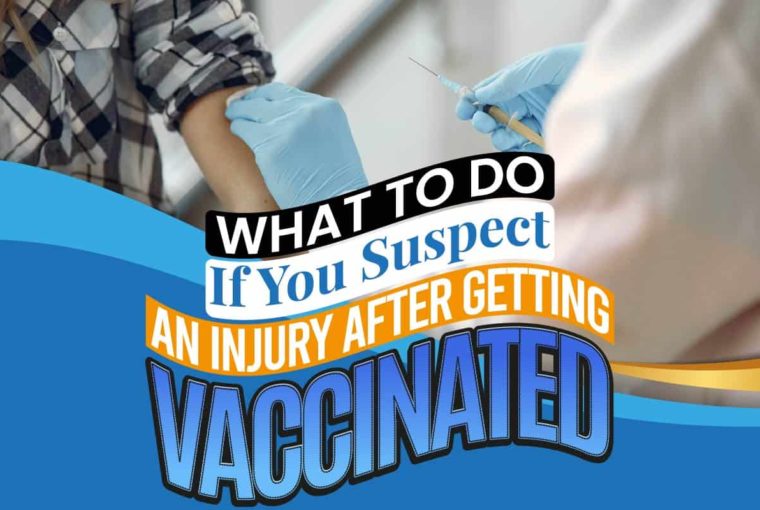For many years, vaccines have been used to fight diseases and save lives. You should know that there’s no such thing as a risk-free medical procedure. Although a vaccine may have a low risk of injury, it might cause adverse effects on the patient in some scenarios.
For this reason, it’s crucial you get to know which actions you should take when you or your loved ones suffer injuries from certain vaccines. Fortunately, a help center, like the National Vaccine Injury Compensation Program, can help you through this process.
So what should you do when you do suffer adverse effects from vaccines? Read on to understand how you can notice the symptoms of a vaccine injury and how to respond to it.
Signs Of Vaccine Injuries
Organizations such as the Centers for Disease Control and Prevention are responsible for ensuring a vaccine is safe to use. But in some cases, administration of vaccine may expose you or your loved ones to possible risks. The possible risks are categorized into the following:
1. Allergic Reactions
In most cases, an individual experiencing allergic reactions to a vaccine isn’t reacting to the active component in the dosage; rather, he or she might be allergic to the gelatin in certain vaccines.
After an injection, monitor yourself or your loved one to look for any allergic reactions. They usually occur within the first hour after the administration. Common signs of allergic reactions include these symptoms:
- hives
- low blood pressure
- racing heartbeat
- throat swelling
- vomiting
- difficulty breathing
- diarrhea
If you experience such reactions, you should seek medical attention ASAP. If you live far from your nearest hospital, call 911 or other emergency response units to get immediate quick check-up.
2. Shoulder Injury
Although shoulder injuries are rare, they often occur enough to be officially recognized by the National Vaccine Injury Compensation Programs (VICP).
It occurs when the vaccine is administered too high in the arm. The vaccine should be injected into the deltoid muscle, but sometimes the needle may pierce through the bursa, a bubble of fluid in your shoulder joint. Damaging this fluid can lead to health issues such as loss of joint mobility, tendinitis, or bursitis. You might experience these symptoms for weeks or months.
If you experience any discomfort or pain around your shoulder, visit your physician. They can offer several treatment options, such as steroids, physical therapy, or surgery, depending on the severity of the issue.
3. Guillain Barre Syndrome
It’s a critical issue that causes the damaging of nerve cells by your immune system. Although there is no known cause of this condition, GBS has been found in certain vaccines like flu shots. Some of the visible signs you should look out for include the following:
- muscle pain or weakness, numbness, and tingling sensations
- mobility difficulties
- difficulty speaking or breathing
If you notice such symptoms after receiving a shot, you should seek immediate medical attention.
4. Acute Disseminated Encephalomyelitis (ADEM)
ADEM is a health disorder that tricks your immune system into attack the myelin sheath that forms around your nerves. The myelin sheath allows quick and efficient electrical impulses along the nerve cells, and ADEM affecting your nervous system could prove harmful to you. Although it’s mainly linked to infections, certain vaccines can cause this condition, even months after the administration.
Signs of ADEM may include
- loss of vision
- weak muscles
- difficulty coordinating simple movements
These are some of the most common symptoms and injuries linked to vaccinations, but you should know that the list could potentially be endless. If you or your family member experience any discomfort after receiving a vaccine, that might be your cue to seek immediate medical attention to help improve your health.
Seek Compensation For Your Vaccine Injury
Did you know that you can receive compensation for a proven vaccine injury? VICP is a non-fault body formed to help individuals receive compensation for the damages caused by a vaccine.
How Does It Work?
VICP was established as an alternative to the traditional legal process of settling vaccine-related petitions. In VICP, any person of any age who was injured after vaccination can file a petition. It’s the responsibility of parents and legal reps to file a petition on behalf of minors, developmentally challenged adults, and deceased individuals.
Before filing a petition, it’s important that you seek legal counsel first. The process of proving that the vaccine caused the injury or death might be complex, and having an experienced advocate is vital to help you in this complicated legal procedure.
An advocate with experience in these cases will have access some resources that are crucial in this legal process, including
- expert medical witness to analyze your data,
- all evidence prepared and ready for hearing, and
- communications between you and the people responsible for delivering a verdict, among others.
After the hearing, if the court proves that the vaccine caused the injury, you will receive compensation. However, if the decision does not go your way, your counsel will help you file an appeal to ensure you receive the compensation for the damage caused.
Bottom Line
After receiving a vaccine shot, you should seek immediate medical attention if you experience any discomfort or pain. Make sure to have these symptoms recorded by your physician so you could use this as evidence when filing for a petition. Vaccines may help save lives, but you also need to exact measures to protect yourself from its potential adverse effects.





